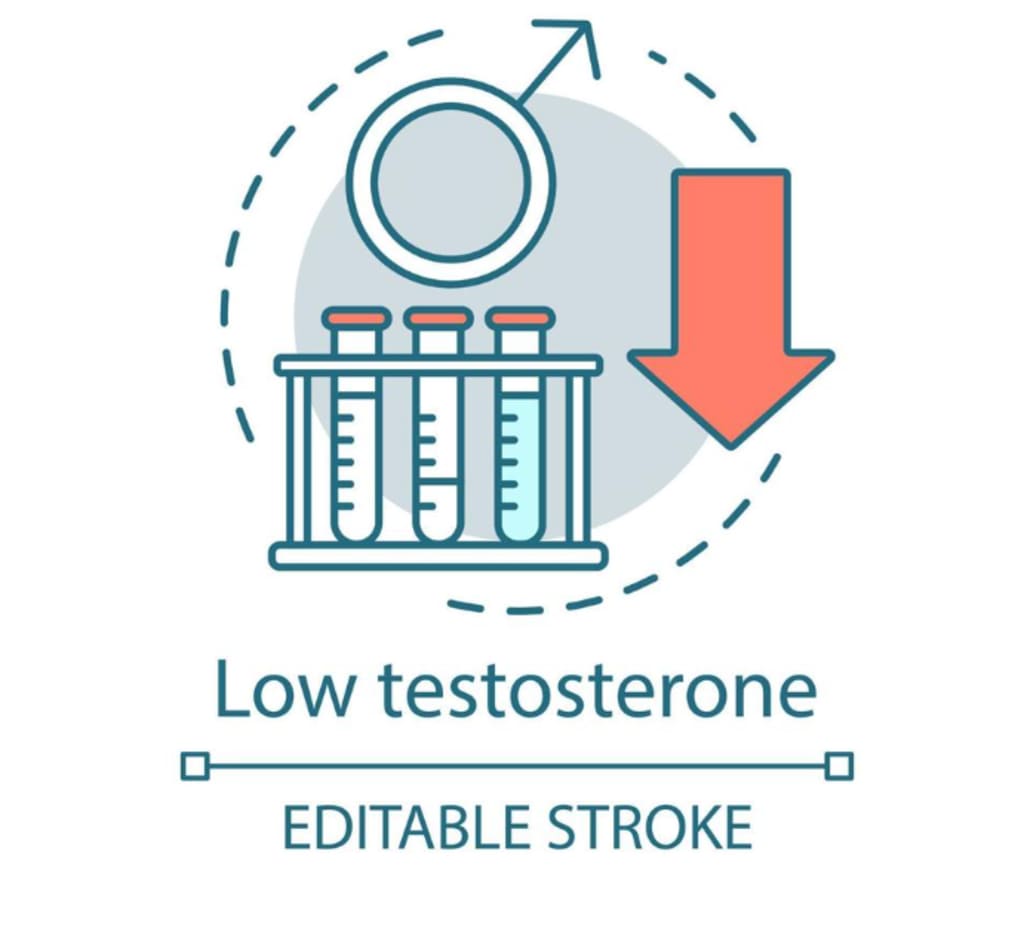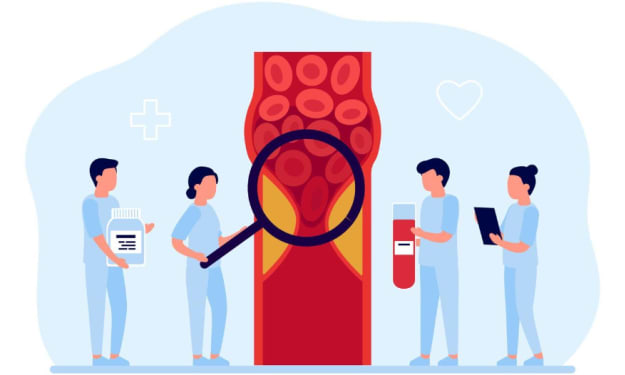What happens when a man's testosterone is low?
What does testosterone do for the body?

## The Effects of Low Testosterone in Men: Understanding the Changes and Solutions
Testosterone, often referred to as the "male hormone," plays a critical role in the overall health and well-being of men. It influences a range of bodily functions, from muscle mass and bone density to mood and libido. When testosterone levels drop, it can lead to a variety of physical, emotional, and cognitive changes. Understanding these changes is the first step in addressing the issue effectively.
### Physical Symptoms
1. **Decreased Muscle Mass and Strength**: Testosterone is essential for muscle growth and maintenance. Low levels can lead to a noticeable decrease in muscle mass and strength, making it harder to perform physical activities and maintain fitness.
2. **Increased Body Fat**: Alongside muscle loss, low testosterone can lead to an increase in body fat. Men may notice more fat around their abdomen, which can be challenging to lose through diet and exercise alone.
3. **Reduced Bone Density**: Testosterone helps maintain bone density. A decline in testosterone levels can result in weaker bones, increasing the risk of fractures and osteoporosis.
4. **Hair Loss**: While hair loss is often attributed to genetics, low testosterone can also contribute to thinning hair or balding.
5. **Fatigue and Low Energy Levels**: Persistent fatigue and a lack of energy are common symptoms. Men with low testosterone may find themselves feeling tired even after adequate rest.
### Emotional and Cognitive Symptoms
1. **Mood Changes**: Testosterone influences mood and emotional well-being. Low levels can lead to mood swings, irritability, and even depression.
2. **Reduced Libido and Sexual Performance**: A significant drop in testosterone can lead to a decreased interest in sex and difficulties with sexual performance, including erectile dysfunction.
3. **Cognitive Decline**: Some men experience difficulties with concentration, memory, and other cognitive functions when their testosterone levels are low.
### Possible Causes
Several factors can contribute to low testosterone levels, including:
- **Aging**: Testosterone levels naturally decline with age. Most men experience a gradual decrease in testosterone starting in their 30s.
- **Medical Conditions**: Conditions such as hypogonadism, diabetes, and obesity can affect testosterone production.
- **Medications**: Certain medications, particularly those used to treat chronic illnesses, can interfere with testosterone production.
- **Lifestyle Factors**: Poor diet, lack of exercise, excessive alcohol consumption, and chronic stress can negatively impact testosterone levels.
### Diagnosis and Treatment
If you suspect that you have low testosterone, it is crucial to consult a healthcare professional. They can perform a simple blood test to measure your testosterone levels. If your levels are indeed low, several treatment options are available:
1. **Testosterone Replacement Therapy (TRT)**: TRT involves using testosterone gels, patches, injections, or implants to restore normal levels. This treatment should be closely monitored by a healthcare provider to manage any potential side effects.
2. **Lifestyle Changes**: Improving diet, increasing physical activity, reducing stress, and getting adequate sleep can naturally boost testosterone levels.
3. **Medications**: In some cases, medications that stimulate the body’s own production of testosterone may be prescribed.
### Conclusion
Low testosterone can significantly impact a man's quality of life, affecting physical health, emotional well-being, and cognitive function. Recognizing the symptoms and seeking appropriate medical advice is essential. With proper diagnosis and treatment, men can manage low testosterone effectively and maintain a healthy, active lifestyle.
## Is High Testosterone Good? Exploring the Benefits and Risks
Testosterone is often heralded as the hormone that fuels male vitality, strength, and virility. While it's true that optimal levels of testosterone are crucial for various bodily functions and overall well-being, the question of whether high testosterone is inherently good is more nuanced. Let’s delve into the benefits and potential risks associated with high testosterone levels.
### Benefits of High Testosterone
1. **Increased Muscle Mass and Strength**: Testosterone plays a vital role in muscle protein synthesis. Higher levels can enhance muscle growth and strength, which is why athletes and bodybuilders often seek to maximize their testosterone levels.
2. **Enhanced Libido and Sexual Performance**: Testosterone is a key driver of sexual desire in men. Higher levels can lead to an increased libido and improved sexual performance.
3. **Improved Mood and Confidence**: Optimal testosterone levels are associated with better mood and higher levels of confidence and assertiveness. Men with higher testosterone may experience lower levels of depression and anxiety.
4. **Better Cognitive Function**: Some studies suggest that testosterone can have a positive impact on cognitive abilities, such as memory and problem-solving skills.
5. **Bone Health**: Higher testosterone levels can help maintain bone density, reducing the risk of osteoporosis and fractures.
### Risks of High Testosterone
While there are clear benefits, excessively high levels of testosterone can pose significant health risks:
1. **Aggression and Mood Swings**: Elevated testosterone levels can sometimes lead to increased aggression and mood swings. This is often referred to as "roid rage" in the context of anabolic steroid abuse.
2. **Cardiovascular Issues**: High testosterone levels have been linked to an increased risk of cardiovascular problems, including heart attacks and strokes. This risk is particularly notable in men who use testosterone replacement therapy (TRT) or anabolic steroids without medical supervision.
3. **Prostate Health**: Excessive testosterone can stimulate the growth of the prostate, potentially leading to benign prostatic hyperplasia (BPH) or even contributing to the development of prostate cancer.
4. **Sleep Apnea**: High testosterone levels can exacerbate or contribute to sleep apnea, a condition characterized by interrupted breathing during sleep.
5. **Infertility**: Paradoxically, very high levels of testosterone can impair fertility by disrupting the normal production of sperm.
6. **Skin Conditions**: Elevated testosterone levels can increase the production of sebum, leading to oily skin and acne.
### Causes of High Testosterone
Several factors can lead to high testosterone levels, including:
- **Anabolic Steroid Use**: The use of anabolic steroids to enhance athletic performance or physical appearance can significantly raise testosterone levels.
- **Testosterone Replacement Therapy (TRT)**: While TRT is used to treat low testosterone, improper dosing or unsupervised use can result in excessively high levels.
- **Medical Conditions**: Conditions such as polycystic ovary syndrome (PCOS) in women, adrenal gland disorders, and certain types of tumors can cause elevated testosterone levels.
### Managing Testosterone Levels
Maintaining balanced testosterone levels is crucial for overall health. Here are some tips for managing testosterone levels effectively:
1. **Regular Check-Ups**: Regular blood tests can help monitor testosterone levels and ensure they remain within a healthy range.
2. **Medical Supervision**: If undergoing TRT or using supplements that affect hormone levels, it's essential to do so under the guidance of a healthcare professional.
3. **Healthy Lifestyle**: A balanced diet, regular exercise, adequate sleep, and stress management can help maintain optimal testosterone levels. TestoChews review
### Conclusion
High testosterone levels can bring about several benefits, including increased muscle mass, improved libido, and better mood. However, excessively high levels can lead to serious health risks such as cardiovascular issues, prostate problems, and mood disturbances. Striking a balance and maintaining testosterone within a healthy range, under medical supervision if necessary, is the key to leveraging its benefits while minimizing potential harms.
About the Creator
peter
Content about cars, motorbikes, technology, news
Enjoyed the story? Support the Creator.
Subscribe for free to receive all their stories in your feed. You could also pledge your support or give them a one-off tip, letting them know you appreciate their work.






Comments
There are no comments for this story
Be the first to respond and start the conversation.